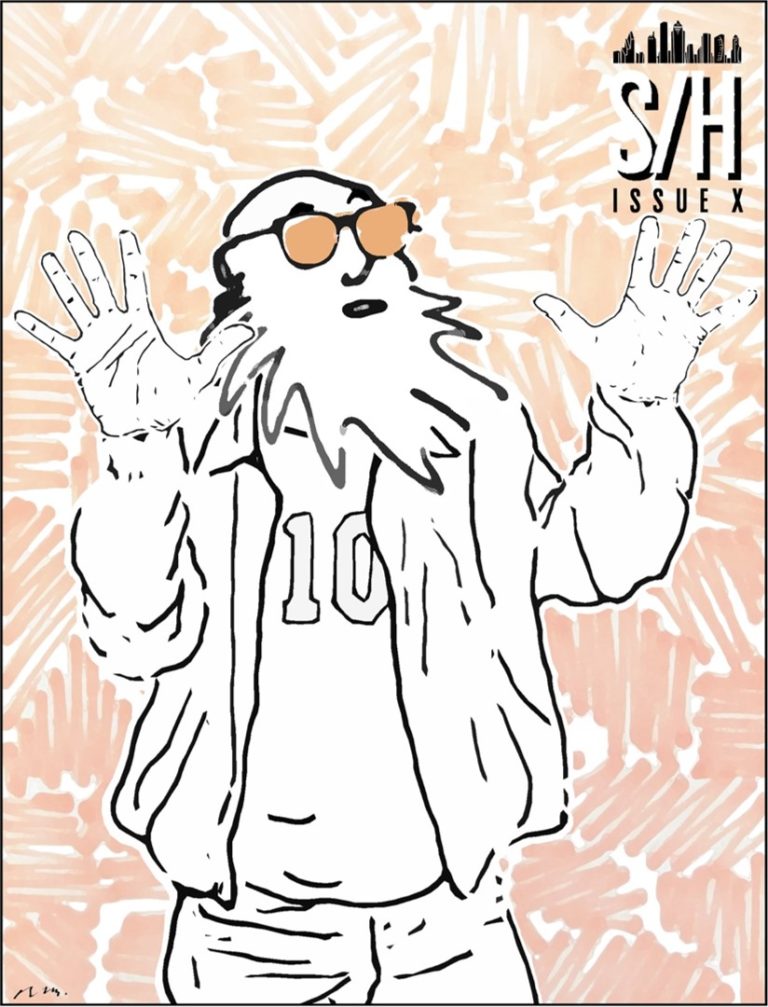Editor’s Note
They say that when Julius Caesar crossed the Rubicon and set foot on Roman territory, invading his home country and threatening its democratic government with a military coup, that he uttered the words “the die is cast.” Our team of editors scoured Wikipedia for hours to find the perfect historical metaphor to describe where Story|Houston is today, now that we’re on our tenth issue, and we think that one’s best.
Ten issues. That’s considerably farther than we imagined we’d go when we cooked up this Story|Houston caper back in 2013. At the time we were only able to think two or three issues in advance, though we certainly hoped we’d get to ten eventually. It turns out that running a modest literary journal, like conquering the known world, is hard work. The Story|Houston offices have been firing on all cylinders to put together Issue 10 as well as an anthology featuring the winners of our contest and some of our other favorite work. We’ve had to make several new hires and take on multiple unpaid interns just to stay on top of it all, but there is light at the end of the tunnel: Issue 10 appears before you at this very moment, and the anthology will be hitting the shelves faster than you can say Willa Cather.
On to the Issue Ten stories. The slush pile gods have been generous to Story H, and we’ve got delightful morsels for you from opposing ends of the literary spectrum. There are two of those things that we set out to discover when we founded this journal: stories. You know—those things with characters and a plot that have a beginning, a middle, and an end. And then we have a pair of somethings completely different: nonfiction essays that dispense with most traditional story elements to contemplate the sensual nature of writing itself. We found this to be a fitting dichotomy for this issue, now that we’re presenting the mag as a rogue general reinventing herself at the crest of her popularity; yes, we have “story” in our name, but we can do it all.
The first of the story-stories is Wes Trexler’s “Safehouse,” a slice-of-life piece lifted from an unexpected sanctuary. Mr. Trexler has a still-life painter’s eye for detail, and his story is full of touches that are not to be found in a hundred slush piles. Keep your eye on Mr. Trexler.
We go from the oasis of an underground grow operation to the inevitable loss of the sense of safety brought on by adolescence. John Thurgood’s “For William” is a coming-of-age tale that weaves the fresh with the familiar in the way that the best stories can.
Cora J. Duffy’s “Tone Poem No. 1: ‘ Für Nabokov’” takes us to the other side of that spectrum I mentioned earlier. The essay begins with a summation of the classical music tastes of Nabokov the dachshund, and from there leads us on a contemplative journey through the senses and their relationship to music, writing, and neuroscience; Nabokov the human, you’ll remember, was outspoken about his synesthesia and the sensual experience of the act of writing.
Danielle Zaccagnino’s “Touch, and a Fracturing” makes the connection between writing and the senses differently but just as explicitly. After telling a brief story about how a massage experience made her want to be a writer, Zaccagnino intercuts accounts of the protagonist’s past working life as a massage therapist with musings on poetry, wordplay, and (again) neuroscience. Read this essay and you’ll agree: Zaccagnino has the touch.
And that’s Issue Ten. Special thanks go to new artist Cameron McFarland, who did an Augustan job on our story illustrations. And, as ever, we’d like to thank Story|Houston’s own artistic muse, Matthew Boelsche, for another exquisite cover featuring Driftwood.
David Monroe
Editor and Consul
Story|Houston

